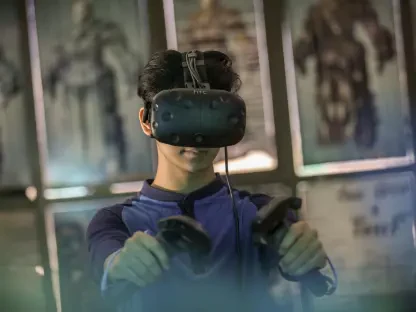In the heart of Alaska, near the serene landscapes of Eagle River, an annual field trip organized by Juneau’s Tlingit Culture, Language, and Literacy (TCLL) program offers a profound opportunity for students to connect with their Lingít heritage. This immersive experience, designed for learners from preschool to middle school, goes beyond traditional classroom education by placing participants directly into the cultural and natural settings that have shaped Lingít traditions for generations. Through hands-on activities and real-world language use, the event fosters a deep appreciation for cultural practices while building essential life skills. It serves as a powerful reminder of how experiential learning can bridge generational gaps and preserve endangered languages and customs in a rapidly modernizing world. The significance of this initiative lies not only in education but in the strengthening of community bonds and identity among young learners.
Celebrating Heritage Through Experiential Learning
Engaging with Traditional Practices
The field trip, held near the Eagle River United Methodist Camp, transforms the natural environment into a vibrant classroom where students actively participate in Lingít cultural practices. Activities such as foraging for s’ikshaldéen, commonly known as Hudson Bay tea, and filleting coho salmon for hearty fish soup are central to the experience. These tasks are far more than mere exercises; they embody the essence of Lingít traditions, teaching students the importance of sustainability and respect for nature. As young participants navigate the mossy muskeg or prepare food for community gatherings, they hear and speak the Lingít language in authentic contexts. This approach ensures that vocabulary and expressions are not just memorized but lived, creating a lasting impact on their understanding. Educators emphasize that such immersion helps students internalize cultural values, making lessons resonate on a personal level as they envision applying these skills in future community events.
Building Skills for Future Generations
Beyond immediate engagement, the field trip equips students with practical abilities that carry profound cultural significance. Preparing jam to share at a Ku.éex’, a traditional potlatch or ceremonial gathering, instills the value of reciprocity—a cornerstone of Lingít society. This act of giving back to the community through shared resources highlights the interconnectedness that defines their way of life. For many students, these experiences are a stepping stone to honoring loved ones through traditional ceremonies in the years ahead. Middle schoolers, in particular, benefit from extended overnight participation, which allows deeper exploration of leadership roles as they guide younger peers through tasks. This progression from learner to mentor fosters confidence and a sense of responsibility. The program’s structure, adapted to include older students, reflects a commitment to nurturing cultural continuity across different age groups, ensuring that these vital practices endure.
Fostering Community and Cultural Identity
Strengthening Intergenerational Bonds
A standout feature of the TCLL field trip is its emphasis on community involvement, bringing together students, families, and educators in a shared mission of cultural preservation. Volunteers and relatives join hands with participants, creating a supportive network that mirrors the collaborative spirit of Lingít heritage. This intergenerational dynamic allows for the transmission of knowledge directly from elders and experienced community members to the youth, enriching the learning process with personal stories and historical context. For instance, children from the Lingít language preschool, Haa Yoo X̱’atángi Kúdi, work alongside older students, fostering a sense of unity and shared purpose. Such interactions not only reinforce language use but also build emotional connections, as participants see themselves as part of a larger cultural tapestry. The event becomes a living bridge between past and present, ensuring that traditions remain relevant and cherished.
Nurturing Leadership and Confidence
The impact of the field trip extends to personal growth, particularly among middle school students who take on leadership roles during the overnight component of the event. Educators have noted remarkable progress in how these young individuals step up, guiding their peers with increasing fluency in the Lingít language and demonstrating maturity in group activities. Moments of camaraderie, often filled with lighthearted humor, further solidify social bonds, making the learning environment both enjoyable and supportive. Teachers express immense pride in witnessing this transformation, as students evolve from tentative learners to confident contributors. The real-world application of language and skills in outdoor settings proves to be a powerful catalyst for building self-assurance. This growth signals a promising future for the TCLL program, as it continues to expand its reach and adapt to the needs of a diverse student body, reinforcing its role as a cornerstone of cultural education in the region.
Reflecting on a Shared Legacy
Looking back, the annual TCLL field trip stood as a testament to the power of immersive education in sustaining Lingít culture and language. It provided a unique space where students of all ages engaged with their heritage through tangible, meaningful experiences that went beyond textbooks. The event highlighted the importance of community collaboration, as families and educators united to pass down invaluable traditions. As a result of these efforts, young learners developed not only linguistic proficiency but also a profound sense of identity and responsibility. Moving forward, the program’s success suggests a need for continued support and expansion, ensuring that such initiatives reach even more students. Exploring partnerships with other cultural organizations or integrating digital tools to document and share these experiences could amplify the impact. Ultimately, sustaining these field trips promises to keep Lingít heritage vibrant, preparing future generations to carry forward their legacy with pride.









